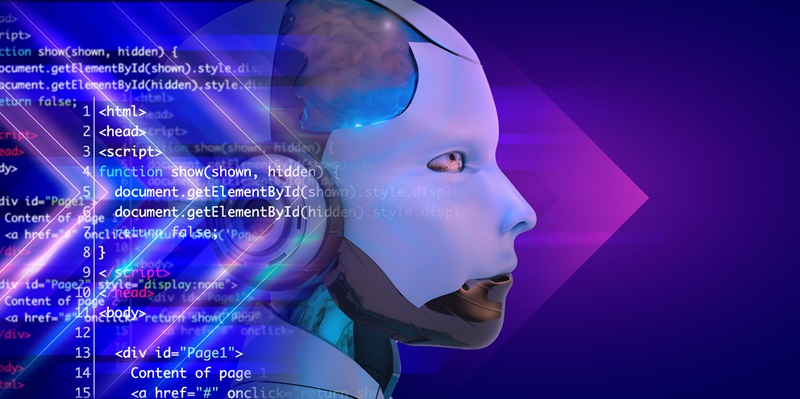A survey conducted among 406 developers, software engineers, CTOs, CISOs, and application security professionals has shed light on the differing levels of enthusiasm and readiness for adopting AI coding tools within organizations. The results reveal a noteworthy divergence between the perspectives of C-level executives and those of developers and application security professionals. With 80% of respondents showing openness to AI tools for code generation, the nuances lie within the degrees of readiness and perceived importance.
Different Levels of Enthusiasm Among Professionals
C-Level Executives vs. Developers and Application Security Professionals
While the survey indicates that a significant majority of professionals are open to adopting AI tools for code generation, enthusiasm levels are notably higher among C-level executives. Specifically, 40% of the 135 surveyed executives claimed their organization is “extremely ready” to embrace these tools. This stands in contrast to only 22% of the 119 developers and 26% of the 58 application security professionals who shared the same level of readiness. This disparity underscores the strategic priorities of C-level executives, who tend to focus on long-term benefits and competitive advantages.
Further, the survey highlights that one-third of C-level executives consider the adoption of AI coding tools to be critical for their organization’s future. Surprisingly, 19% of these executives do not associate any risk with AI tools, a sentiment that reflects their optimism. However, this enthusiasm should be tempered with a realistic appraisal of AI’s capabilities and limitations. Snyk CTO Danny Allan advises rigorous testing of AI-generated code within specific use cases due to the probabilistic nature of generative AI tools, which can lead to variable output quality.
Perception of AI-Generated Code Security
Despite the general optimism among executives, there is a measured caution regarding the security of AI-generated code. Among the respondents, 63% rated the security of AI-generated code as “excellent” or “good,” while only 6% viewed it as “bad.” This generally favorable perception hints at the potential for AI to enhance code quality, though it is crucial to note the importance of comprehensive testing and validation.
The survey also points out that less than half of the organizations provide thorough AI coding tool training to their developers. This lack of training could pose a significant barrier to effective adoption and utilization of AI tools. Moreover, fewer than 20% of organizations have conducted a proof-of-concept for AI tool adoption, reflecting a cautious approach toward full-scale implementation. This cautiousness may be rooted in the unpredictable nature of AI outputs or a lack of complete trust in current AI capabilities.
Trends and Responsibilities in AI Tool Adoption
Discrete Usage and the Role of DevOps Teams
A notable trend identified in the survey is the discrete and possibly broader unofficial usage of AI coding tools. Individual developers might be using these tools without disclosing it to their teams or managers. This highlights the essential role of DevOps teams in employing software bill of materials (SBOMs) to trace the origins of code, whether it is human or machine-generated. This traceability is vital for ensuring accountability and maintaining the integrity of the codebase, particularly in environments where AI-generated code is incrementally adopted.
There is also growing anticipation for a future where AI will regulate how developers use AI tools. However, in the current scenario, DevOps teams must prepare for exhaustive troubleshooting of AI-generated code. This involves a nuanced approach where human oversight is critical to manage and refine the code produced by AI tools. Therefore, even as AI assists in speeding up code generation, human expertise remains indispensable for quality assurance and risk mitigation.
Temporary Imbalance in Tool Adoption
Another critical insight from the survey is the temporary imbalance in tool adoption across different roles within the organization. While AI tools are rapidly becoming accessible to developers, DevOps engineers might experience a lag as they wait for corresponding updates to their workflow management platforms. This delay can create friction and slow down the overall pace of adoption, potentially hampering the collaborative efforts required for seamless integration of AI tools across the development and operations lifecycle.
Despite these challenges, there is an optimistic outlook for the future of AI coding tool adoption. As tools continue to evolve and mature, and as organizations invest more in comprehensive training and proof-of-concept initiatives, the adoption rate is expected to increase significantly. For now, the responsibility for maintaining code quality predominantly lies with software engineers, even as developers leverage AI tools to enhance productivity and output.
The Path Forward for AI Coding Tools
A recent survey, which encompassed responses from 406 individuals including developers, software engineers, CTOs, CISOs, and application security professionals, has highlighted varying levels of enthusiasm and preparedness for integrating AI coding tools within organizations. This comprehensive study unveils a significant division between the views of C-level executives and those of developers and application security experts. While a striking 80% of the participants expressed a general openness to utilizing AI tools for code generation, the survey delves deeper into the subtleties of readiness and the perceived significance of these advanced tools.
Developers and application security professionals exhibited a cautious optimism, often emphasizing the necessity for thorough testing and validation of AI-generated code. On the other hand, many C-level executives are eager to push forward with AI integration, viewing it as a pivotal element in driving efficiency and innovation within their organizations. This disparity underlines a crucial aspect of leadership and execution in tech adoption—balancing strategic ambition with practical implementation.

